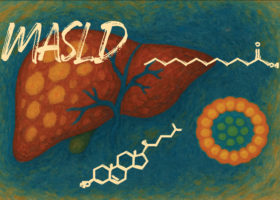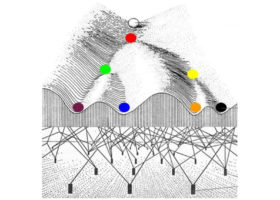The FEBS Advanced Lecture Course ‘MASLD: from novel liver model systems to organelle pathophysiology’ will take place in the island of Spetses, Greece, 3–8 September 2026. It will bring together experts to teach the basics and discuss the state-of-the-art in the highly relevant and interconnected topics of liver (patho)physiology, hepatocyte metabolism, liver fibrosis, hepatocellular carcinoma, and the development of novel model systems.
A disbalance in the synthesis, secretion, and uptake of lipids can cause MASLD (metabolic dysfunction-associated steatotic (fatty) liver disease), which can lead to hepatic inflammation (MASH), fibrosis, cirrhosis, and hepatocellular carcinoma. MASLD has a worldwide prevalence of 30%, with 20% of MASLD-affected individuals developing MASH and ~20% of this group developing liver cirrhosis over the next 3-4 decades. Increases in obesity worldwide mean these numbers are expected to rise, so preventive measures and drug development are urgently needed.
In this context, newly developed model systems representing key aspects of liver function and liver structure are helping the elucidation of molecular and cellular pathways involved in MASLD, and ultimately allowing the identification of novel druggable key nodes. The course is open to PhD students and early-career researchers and will be organized in an informal setting with many sessions and activities scheduled to stimulate interactions between the participants and the speakers.
The course website is under construction. Additional information can be obtained from this FEBS Network post by the course organizer.
Organizers: Bernd Helms, Benedetta Artegiani, Delilah Hendriks, Panu K. Luukkonen



